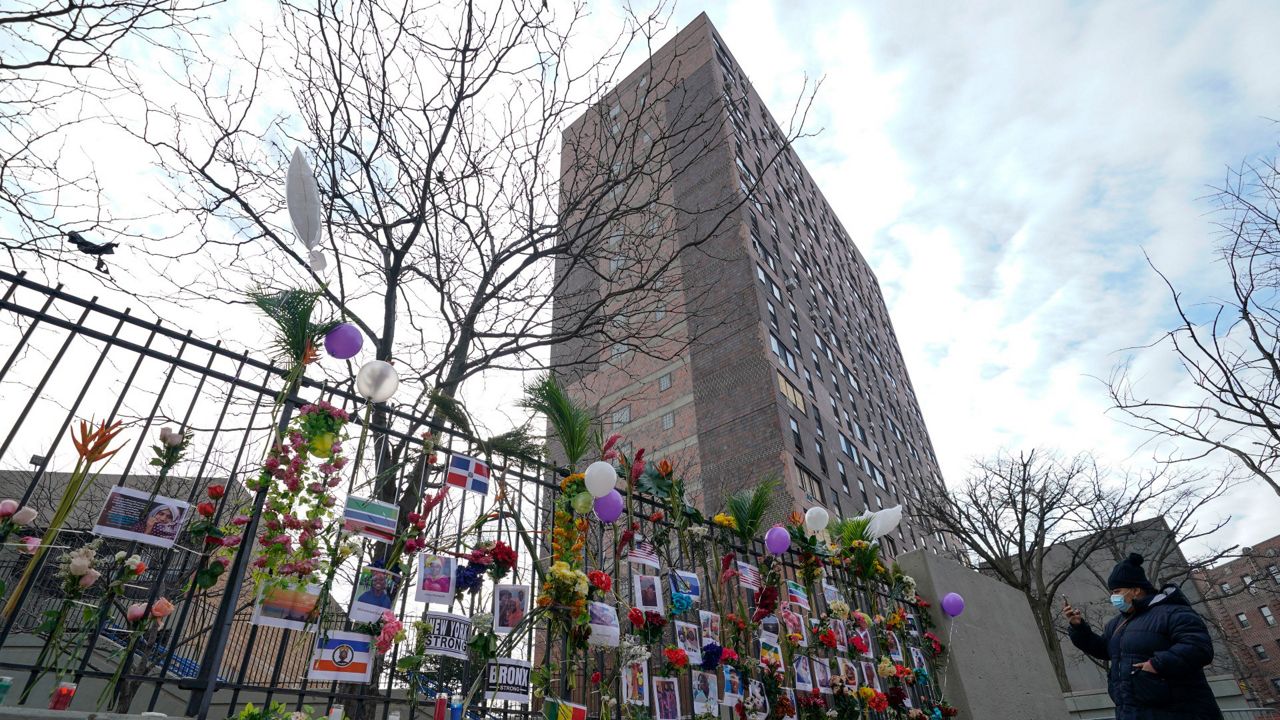Council members questioned fire and housing department leaders in a hearing Wednesday on the gaps in the city’s safety inspections of residential buildings in the wake of a January fire at a high-rise in the Bronx that left 17 people dead.
The fire at the Twin Parks Northwest building, the city’s deadliest in decades, has spurred a slate of proposed legislation from council members.
The bills include lowering the number of days the city has to ensure that safety violations are fixed, raising fines for landlords who don’t make fixes, raising minimum nighttime temperatures that landlords must provide during the winter and banning sales of portable heating units — the cause of the Twin Parks fire — that do not have certain safety features.
In a joint hearing of several council committees, council members questioned officials of the FDNY and the Department of Housing Preservation and Development on the scope, consistency and efficiency of their safety inspections, and sought their positions on the proposed legislation.
The officials said they supported or had no position on much of the legislation. AnnMarie Santiago, a deputy commissioner for HPD, said she had concerns about lowering from 21 days to 10 the amount of time a landlord has to fix a violation related to self-closing doors.
The Twin Parks fire, sparked by a portable heater in one unit, spread smoke throughout the 120-unit building in minutes because two doors that are required by city law to shut automatically did not.
Santiago said 10 days might not be enough to find a contractor and schedule a maintenance time with a tenant, and could take HPD inspectors away from more immediately life-threatening issues.
Questions from the council members brought to light several areas where FDNY and HPD did not share information about safety hazards.
The FDNY does not notify other agencies when it finds that a door that is supposed to self-close does not, and does not share an internal algorithm that ranks city buildings based on likelihood of fire danger. The department inspected 40,000 residential buildings last year, according to John Hodgens, the FDNY’s chief of department.
Council members also questioned the extent of HPD’s auditing and re-inspecting of safety issues that landlords report as fixed. In 2021, the department received 21,000 reports of malfunctioning self-closing doors, and attempted to audit 40% of doors that owners had certified as corrected.
Santiago said that letters sent to tenants after a repair is reported, encouraging tenants to contact the department if there are remaining problems, represented another layer of scrutiny.
“I would consider our outreach with the letters to the tenant to be outreach to the tenant to consider whether or not the repair has been done,” she said.
Yet council members criticized the HPD’s standards for time to fix violations and determine that landlords fixed safety issues.
Councilman Oswald Feliz, chair of a special committee on fire prevention formed after the Twin Parks fire, and a former tenant lawyer, said HPD needed to improve its average time to respond to heat violations, which Santiago said was two and a half days.
“I think that timeline is problematic,” Feliz said. “Our weather changes rapidly.”
Santiago said that HPD has a backlog of 100 building inspector positions to fill, to add to its existing 270-member inspector team, but had no timeline for filling the positions.
But several council members said they wanted to see HPD dramatically increase its random inspections of buildings, and move away from a complaint-driven response.
“It’s the lack of enforcement in this city of our housing code that incentivizes our landlord to see breaking the law as the cost of doing business,” Shekar Krishnan, a former tenant lawyer who represents parts of Queens, said.
In testimony submitted for the hearing, the Real Estate Board of New York, a group that represents property owners, said it supported several of the laws proposed by lawmakers but did not support raising overnight heat minimums, in part because of high costs.
“Requiring higher temperatures be maintained could severely exacerbate these costs, and cause significant strain for small building owners, including cooperative shareholders,” REBNY said in the testimony. “Such additional costs could be passed on to tenants which could impact the city’s affordable housing stock.”
The council has not scheduled a vote on the proposed legislation.



